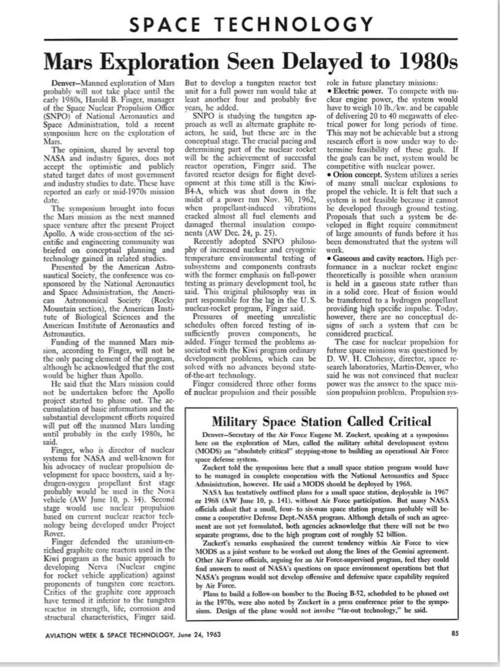During a sequence in the middle of the film the astronauts are shown with a lunar module (standing in as a Mars lander) and there’s also an Apollo command module visible in some shots. The lunar module featured prominently in the film’s trailer. For years, articles about the film questioned whether or not NASA provided any equipment for a movie that clearly painted the agency in a bad light. NASA officials reportedly denied that they had provided any assistance.
But an amusing article by film historian Frederick C. Szebin, “The Making of Capricorn One,” explains what happened, and makes clear that the film did indeed use some leftover Apollo equipment loaned by NASA. The article is printed in the current issue of Filmfax magazine, but has apparently been available online for a decade at the website mania.com (in a somewhat difficult to read format).
Szebin interviewed Capricorn One’s producer Paul Lazarus, who had previously produced Michael Crichton’s Westworld and a 1976 sequel, Futureworld, which had involved some NASA cooperation. Lazarus got involved because he was friends with Peter Hyams, who wrote the initial Capricorn One script, and who wanted to direct the movie. Hyams had recently directed an embarrassing flop, and both men worried that Hyams’ career was over. Capricorn One proved to be the movie that saved it, because Hyams brought it in on-budget and it made a decent amount at the box office. According to film historian Szebin:
The key to getting such a film made within the budget available was to have NASA’s cooperation, a situation Lazarus had enjoyed on Futureworld. A stunt-heavy picture, Capricorn One could only gain from the space administration’s assistance, but the very nature of the story—NASA killing its own to keep a secret—caused Lazarus to despair of any further help from the organization.
“This is a highly unlikely film to get NASA cooperation, because they are the bad guys in the movie,” says Lazarus. “But I called my contact at the NASA Clear Lake facility [i.e. the Johnson Space Center], and he said he would have to see a script. I said to Peter, ‘We’re dead.’ I sent the script and my contact said, ‘Oh, it’s a good story! We’ll be happy to give you our prototype landing module.’ We didn’t have to build any of that! It came up from Orange County, California. In a sense, it’s tax-payer paid for, but anybody who’s been around the government knows that if it’s not something they like, you’re not going to get cooperation.”
“We had untold savings, not to mention authenticity, to get those capsules and other materials from NASA,” Lazarus continues. “Much after the fact, I said to someone at NASA, ‘How could you possibly have approved that script?’ He said, ‘If it had gone to Washington, you would have been finished, but because we liked working with you on Futureworld, I took it upon myself to give cooperation.’ I said, ‘We’re really grateful and surprised.’ He said, ‘I thought you might be.’”



